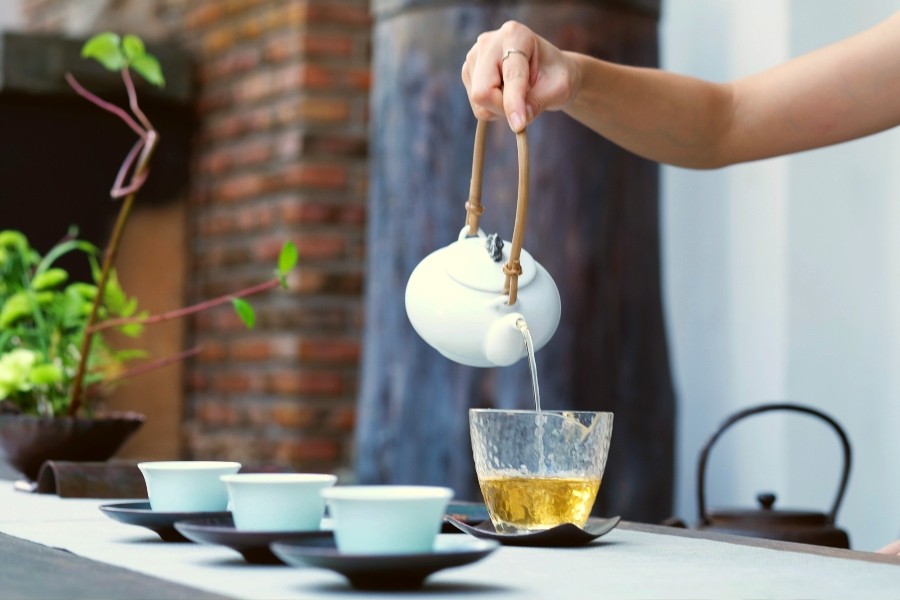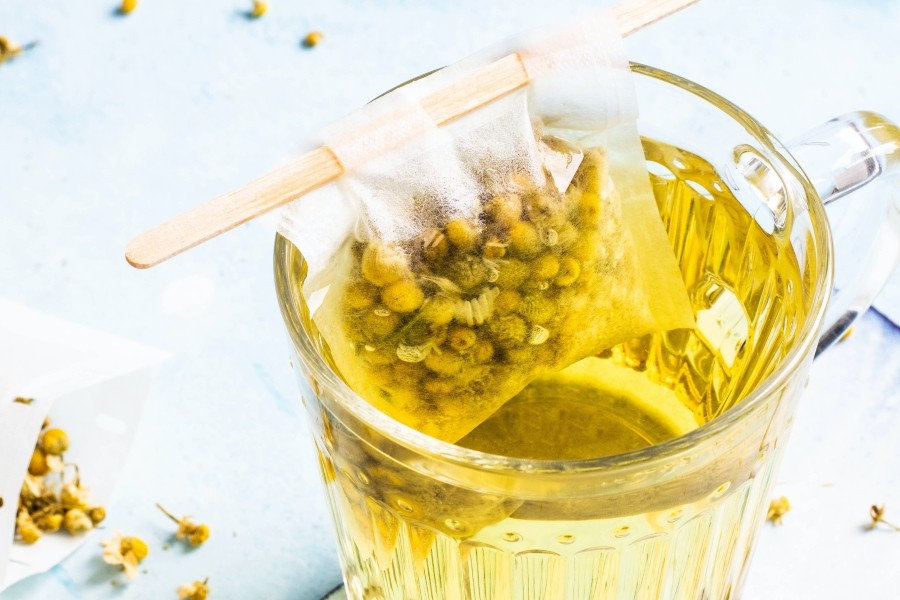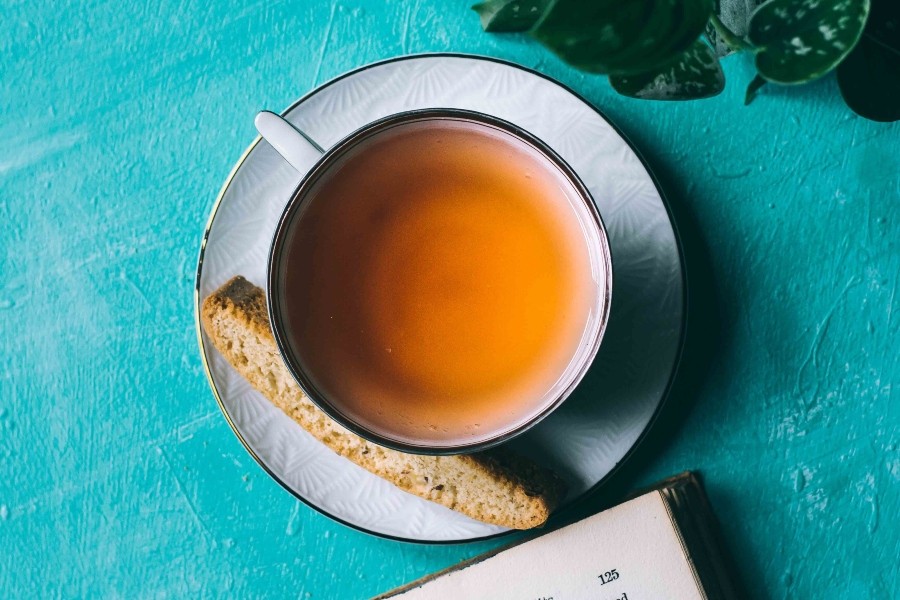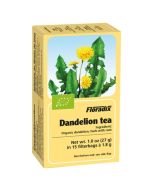
Benefits Of Herbal Tea
By Girish Desai, Pharmacist (GPhC ), Nutritionist and Homeopath
Herbal teas have been around for years, and the range and quality have grown significantly over time. Whether you prefer to avoid the caffeine jolt of coffee, revel in fruit and floral flavours or are simply looking for a new beverage with added health benefits, there is a herbal tea for you!
Here, we look at a few of the most beneficial herbal teas around and how they can help with your daily and lifelong health.
Herbal teas aren't always, actually, teas
Many of the drinks that we refer to as herbal teas are not technically teas at all. Teas are made from the leaves of plants whereas most floral and fruit teas are made from dried fruits, herbs, spices and stems. Herbal teas should, more accurately, be called herbal infusions. Nevertheless, "tea" is the most commonly used term, regardless of whether tea leaves are used (or not).
Below you will find five herbal infusions and five teas, and their health benefits.
5 Herbal Infusions & Their Benefits

1. Camomile Tea
Camomile, also known as chamomile in the US, is a herb with a daisy-like flower. It was used by the ancient Greeks to treat kidney stones, intestinal issues and liver and nervous system problems. Over time we've developed our understanding of how camomile tea benefits the body, though the ancient Greeks weren't wrong in most respects.
Camomile tea aids relaxation and dampens anxiety. It can also help you get to sleep. Camomile does this by influencing neurohormones, like melatonin, which is responsible for inducing sleep.
It can also help to reduce menstrual pain and muscle spasms as it increases levels of glycine in the body. Glycine is an amino acid that relaxes nerves and muscles.
Camomile tea can help to improve skin health as it contains a range of anti-inflammatories and antioxidants which fight free radicals (which are damaging to skin) and offer relief from skin irritations.
2. Peppermint Tea
Peppermint has historically been used to aid digestion and its health benefits, particularly within the gut area, are well established. Peppermint has antibacterial properties that help your body fight illness. Additionally, drinking peppermint tea will freshen your breath as these same antibacterial properties combat halitosis – which causes bad breath.
Peppermint tea is an excellent way of getting relief from bloatedness and cramps. The nutrients in peppermint soothe the muscles in your digestive tract, releasing tension there. It is also an antispasmodic, meaning it stops involuntary muscle movements. This means peppermint tea is great at reducing the need to vomit and feeling of motion sickness.
3. Lemon & Ginger Tea
This duo are often grouped together as they offer different but coordinating health benefits related to your immune system. Lemon and ginger tea can be sweetened with honey, which has its own health benefits.
Lemon is high in vitamin C, which helps fight colds and flu. Lemon also contains other nutrients that are vital to boosting your immune response. Ginger is detoxifying. It is a diuretic which means it helps flush out your system, taking toxins with it.
The main agent in ginger is called gingerol and this is a powerful anti-inflammatory and antioxidant, which is why ginger tea is ideal for settling an upset stomach or combating morning sickness during early pregnancy.
4. Cranberry & Raspberry Tea
Beyond having a delicious scent and making a beautiful reddy pink coloured tea, cranberry and raspberry have some wonderful health benefits for your body. Like many herbal teas, cranberry and raspberry contain a host of nutrients, along with antioxidant and antibacterial properties, and these are infused in the tea.
Cranberry and raspberry tea helps to reduce cholesterol levels, which aids the prevention of cardiovascular disease. It does this thanks to the polyphenols in cranberries and raspberries, which are chemicals that enable good heart health.
5. Hibiscus Tea
Hibiscus are a family of bright and bold flowering plants. Their use in cooking has often been decorative, but when it comes to hibiscus tea there are clear health benefits – beyond a great taste and lightly floral smell.
Being rich in vitamin C, several minerals and antioxidants,hibiscus tea is perfect at improving liver health. The many nutrients in hibiscus also means the tea can lower blood pressure – though this also means it is not recommended for those who have to take hydrochlorothiazide (a diuretic used for high blood pressure).
5 Other Teas With Great Health Benefits

1. Green Tea
Unlike the herbal teas listed above, green tea contains a small amount of caffeine. This low amount is released slowly but does provide a mental boost – should you want an alternative to stronger caffeine drinks.
Green tea contains antioxidants called catechins which increase your metabolism. It also contains the amino acid L-theanine which is linked to mood elevation, making your feel happier.
Last but not least, green tea's combination of nutrients can help to protect against breast and prostate cancer, and support a healthy immune system.
2. Jasmine (Green) Tea
Jasmine tea is actually a green tea that has been infused with jasmine flowers. This means that it has all the benefits of green tea, while also being bolstered by the benefits that jasmine flowers bring.
Jasmine tea contains numerous antioxidants that contribute to good skin health, protecting elastin and collagen in the skin and giving jasmine tea anti-aging properties. It also contains nutrients that reduce oxidative stress, which is caused by environmental factors such as cigarette smoke and air pollution, allowing for improved protection from harmful free radicals and dirt.
Additionally, jasmine tea helps to reduce feelings of stress and anxiety – which in itself can be anti-ageing.
3. Earl Grey Tea
Earl Grey is a popular tea but is not often considered for its health benefits. Earl Grey is made from an infusion of bergamot oil into the tea leaves, which gives it its distinctive scent and flavour.
Earl Grey tea contains antioxidants which help to fight inflammation and defend against free radicals. Some of those antioxidants, the catechins, also speed up your metabolism. It also helps to reduce anxiety and feelings of depression.
4. Assam Tea
Assam tea is a kind of black tea from the Assam state in India. It has a strong flavour, bright colour and some impressive health benefits related to heart health.
Assam contains antioxidants that strengthen blood vessels and lower blood pressure. Because of this, Assam tea is also effective at reducing the risk of cardiovascular disease. Specifically, the flavonoids prevent the buildup of plaque inside arteries. It also has caffeine which can provide a boost to mental alertness.
5. Rooibos / Redbush Tea
Rooibos is Afrikaans for red bush, which is where it gets its alternative name. Rooibos has a positive effect on blood pressure, increasing not just low blood pressure but improving circulation. Rooibos tea has also been found to raise good cholesterol in the body, while reducing bad cholesterol.
It is also believed that rooibos has allergy relief qualities, comparable to synthetic antihistamines, thanks to a bioflavonoid it contains called quercetin. Sipping rooibos tea can allow for allergy relief, particularly in milder cases.
Disclaimer
The products offered are not intended to diagnose, treat, cure, or prevent any illness or disease, or replace the advice of a medical professional. Results are not guaranteed and may vary from individual to individual.





